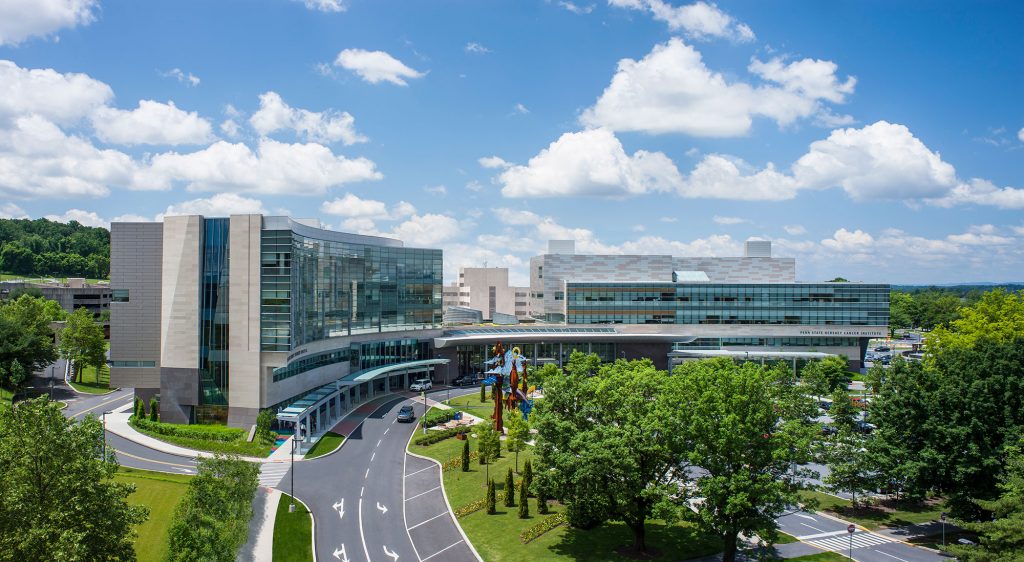Jump to topic
Search
Program Details
The Cardiac Anesthesia Fellowship is designed to prepare the fellow for a career specializing in providing comprehensive anesthetic care of patients undergoing complicated cardiac and thoracic procedures.
Eligible applicants should have completed an ACGME-approved anesthesiology residency program. Program fellows can choose either a July 1 or an Aug. 1 start date.
The cardiac anesthesia fellowship is focused on the tutoring of a prospective fellow for the perioperative transesophageal echocardiography examination (PTE). A prospective fellow also will be provided with an opportunity to perform, under appropriate supervision, a number of transesophageal echocardiograms (TEE) sufficient to satisfy the certification criteria of the American Board of Echocardiography in perioperative transesophageal echocardiography.
The fellow will be expected to:
- Perform and read TEEs under supervision of experienced echo cardiographers
- Participate in the echocardiography conferences given by the departments of cardiology and anesthesiology
- Teach anesthesia residents and medical students and/or participate in ongoing clinical research projects
The prospective fellow will be assigned to provide cardiothoracic anesthesia under the supervision of the attending cardiac anesthesiologist. Assignments may be individualized according to educational goals through the selection of elective rotations.
The division provides anesthetic care for approximately 500 patients per year. Patients undergo several surgeries including, coronary artery bypass grafting, including off-pump CABG, valve repair and replacement, ventricular assist device implantation, heart transplant surgery and thoracic aortic aneurysm repairs. The team also provides anesthetic care in about 300 complex pediatric cardiac procedures per year.
The division also plays an active role in the cardiac cath lab and hybrid suite, providing anesthetic care for critically ill patients undergoing high-risk procedures such as TAVR implantation, Mitraclip procedures, ICD lead extractions, ablation procedures and Watchman procedures.
By offering this high-quality fellowship program in cardiac anesthesia, it is the goal of the department and the division to train strong future leaders in clinical practice, scientific study and anesthetic education in preparation for an academic or private practice career.
Learn More about the Fellowship
The mission of the Cardiac Anesthesiology Fellowship is to graduate clinically excellent cardiothoracic anesthesiologists who will be future leaders in the field.
The program aims to:
- Guide the fellow to be a cutting-edge echocardiographer and echo consultant in all aspects of the perioperative care of the CT surgical patient.
- Inspire excellence, innovation and dedication to the field of cardiothoracic anesthesiology.
- Emphasize the institution’s core values of respect, integrity, teamwork and excellence.
Curriculum
- Quarterly fellow-led journal clubs
- Quarterly clinical case reviews
- 26 lectures (including TEE topics)
Clinical Rotations
Clinical rotations are done in 13 four-week blocks.
- Eight blocks in the adult cardiothoracic operating rooms
- One block in the Heart and Vascular Intensive Care Unit
- One block in the adult thoracic and vascular operating rooms
- One block performing TEEs in the operating rooms
- Two blocks of electives
- Options include perfusion, blood bank, pediatric CT operating rooms, additional time in a unit or rotation; there is also a research elective, which must be an IRB-approved protocol.
Eligibility
Candidates must be:
- U.S. citizens, permanent residents or J-1 visa holders (no additional visa types are sponsored)
- Board-eligible or board-certified in anesthesiology
- Eligible for a Pennsylvania medical training license
All applicants must be graduates of an ACGME-accredited anesthesiology residency prior to beginning the fellowship.
All applications must be submitted through SF Match.
Required Supporting Documents
In addition to the SF Match application, the following documents should be submitted via email:
- ECFMG certificate (if applicable)
- ISTE scores
- ABA basic exam result
Email supporting documents to rsant@pennstatehealth.psu.edu.
Interview Process
Interviews will be conducted remotely. All fellowship applications must be submitted through SF Match and applicants will receive further communication via the SF Match system.
Important Dates
- March 3, 2025: Application deadline
- June 5, 2025: Rank list deadline
- June 19, 2025: Match results released
Virtual Tour
Penn State Health
Penn State Health is an integrated academic health system serving patients and communities across 15 counties in central Pennsylvania. It employs more than 20,900 people systemwide.
The system includes Penn State Health Milton S. Hershey Medical Center, Penn State Health Children’s Hospital and Penn State Cancer Institute based in Hershey, Pa.; Penn State Health Hampden Medical Center in Enola, Pa.; Penn State Health Holy Spirit Medical Center in Camp Hill, Pa.; Penn State Health Lancaster Medical Center in Lancaster, Pa.; Penn State Health St. Joseph Medical Center in Reading, Pa.; Pennsylvania Psychiatric Institute, a specialty provider of inpatient and outpatient behavioral health services, in Harrisburg, Pa.; and 2,417 physicians and direct care providers at 225 outpatient practices. Additionally, the system jointly operates various healthcare providers, including Penn State Health Rehabilitation Hospital, Hershey Outpatient Surgery Center and Hershey Endoscopy Center.
In 2017, Penn State Health partnered with Highmark Health to facilitate creation of a value-based, community care network in the region.
Penn State Health shares an integrated strategic plan and operations with Penn State College of Medicine, the University’s medical school. With campuses in State College and Hershey, Pa., the College of Medicine boasts a portfolio of more than $150 million in funded research and more than 1,700 students and trainees in medicine, nursing, other health professions and biomedical research.
Learn more about Penn State Health

Penn State Health Children’s Hospital (left), Penn State Health Milton S. Hershey Medical Center (center) and Penn State Cancer Institute (right)
Penn State Health Milton S. Hershey Medical Center
500 University Dr., Hershey, Pa., 17033 (Derry Township, Dauphin County)
- The health system’s 611-bed flagship teaching and research hospital
- The only medical facility in Pennsylvania accredited as both an adult and a pediatric Level I (highest-level) trauma center
- Dedicated surgical, neuroscience, cardiovascular, trauma and medical intensive care units
- Accredited Life Lion critical-care transport providing more than 1,100 helicopter and approximately 750 ground ambulance transports per year
- More than 1,300 faculty members and more than 650 residents and fellows
- Approximately 29,000 admissions, 73,000 emergency department visits, 1.1 million outpatient visits and 33,000 surgical procedures annually
- Designated as a Magnet hospital since 2007
Learn more about Milton S. Hershey Medical Center
Penn State Health Children’s Hospital
600 University Dr., Hershey, Pa. 17033 (Derry Township, Dauphin County)
- An eight-story, 263,000-square-foot-facility built in 2013 and expanded in 2020
- 160 licensed pediatric beds, 26-bed pediatric intensive care unit and a 56-bed neonatal intensive care unit
- Level IV (highest-level) neonatal intensive care unit
- Level I quaternary (highest-level) pediatric intensive care unit
- Level I (highest-level) pediatric trauma center designation
- Intermediate care unit
- Dedicated pediatric operating rooms
- More than 150,000 pediatric outpatient visits, 20,000 pediatric emergency room visits, and approximately 5,000 pediatric patient discharges annually
Welcome to Hershey
More About Hershey
Interested in learning more about living and working in Hershey, Pa.? See details here:
Wellness, including emotional, spiritual, social and physical health, is a crucial component to training and to becoming a professional, compassionate and resilient physician. Self-care is a skill which must be continually practiced and reinforced. Penn State College of Medicine and Penn State Health are committed to addressing wellness among residents and fellows, with multiple resources readily available.
Institutional resources
- Visit BeWell – a health program designed to support Penn State Health employees
- See Penn State College of Medicine wellness resources here
- Employee Health Care Concierge and Case Management Service
- Partners in Medicine
Moving to a new city with your family does not have to be stressful. Residency programs have assisted many significant others with finding employment. There is also a GME-Wide Partners in Medicine (PIM) group that offers networking opportunities as well as various social and community oriented activities. - The Doctors Kienle Center for Humanistic Medicine
- Active and easily accessed Office of Professional Mental Health
Graduate medical education resources
Institutional Resources
Penn State Health and Penn State College of Medicine celebrate, embrace and support the diversity of all patients, faculty, staff, students and trainees.
Office for Diversity, Equity and Inclusion
In keeping with this, Penn State Health has an active Office for Diversity, Equity and Inclusion with various programs, networks and resource groups, including:
- Talks and lectures on diversity, equity and inclusion through the Inclusion Academy
- Regular events on topics such as eradicating racism and creating a culture of inclusiveness
- Many Business Employee Resource Groups (BERGs), including:
- Disability Business Employee Resource Group
- Interfaith Business Employee Resource Group
- LGBTQ+ Business Employee Resource Group
- Military and Veterans Business Employee Resource Group
- Multicultural Business Employee Resource Group
- NextGen Business Employee Resource Group
- Black Physician Professional Staff Association – Resource Group
- Hispanic Professional Association
- Asian Physician and Professional Staff Association
- International Workforce Inclusion
- Inclusion Academy
Learn more about the Penn State Health Office for Diversity, Equity and Inclusion
Learn more about the College of Medicine’s Office for Diversity, Equity and Belonging
Office for Culturally Responsive Health Care Education
The vision at Penn State College of Medicine and Penn State Health is to equip learners with the knowledge, skills and attitudes they will need to provide culturally excellent health care and research for an increasingly diverse U.S. population. The Office for Culturally Responsive Health Care Education was formed to help meet that goal.
Learn more about the Office for Culturally Responsive Health Care Education
Office for a Respectful Learning Environment
In addition, the institution does not tolerate discrimination, biases, microaggression, harassment or learner mistreatment of any kind, and any concerns are immediately addressed by the Office for a Respectful Learning Environment.
Learn more about the Office for a Respectful Learning Environment
Network of Under-represented Residents and Fellows
The Network of Under-represented Residents and Fellows (NURF) is a group of diverse residents and fellows representing all specialties. NURF’s goal is to promote cultural diversity in the residency programs through community involvement, mentorship with diverse faculty, professional networking and support for the recruitment of diverse medical students into the residency programs.
NURF is sponsored by the Penn State College of Medicine Graduate Medical Education Office and the Penn State Health Office for Diversity, Equity and Inclusion.
Mailing Address
Penn State Anesthesiology and Perioperative Medicine
500 University Dr., H187
Hershey, PA 17033
General Contact Information
Fax: 717-531-0826
Latest News from Anesthesiology

Latest News from the Heart and Vascular Institute






